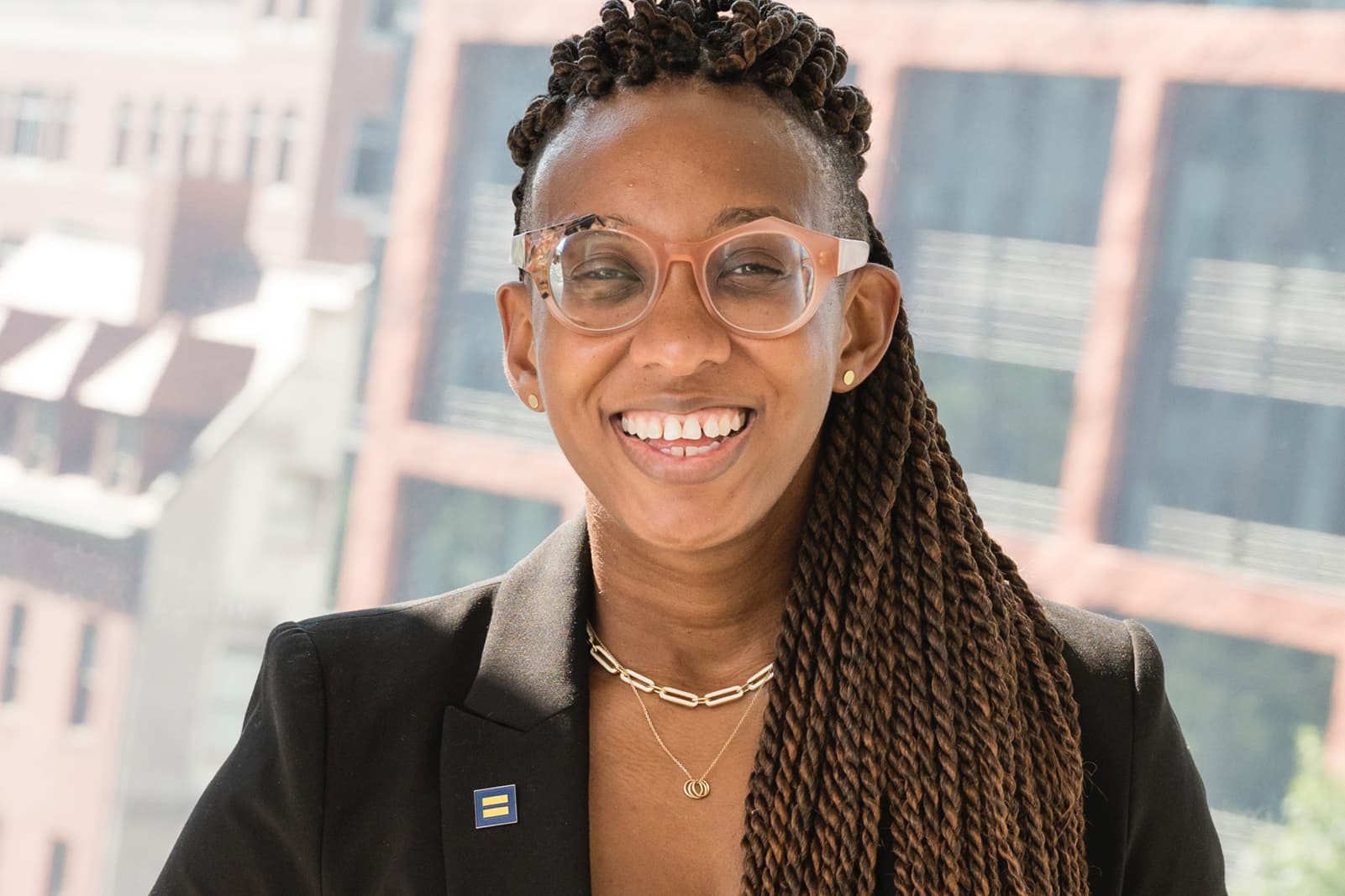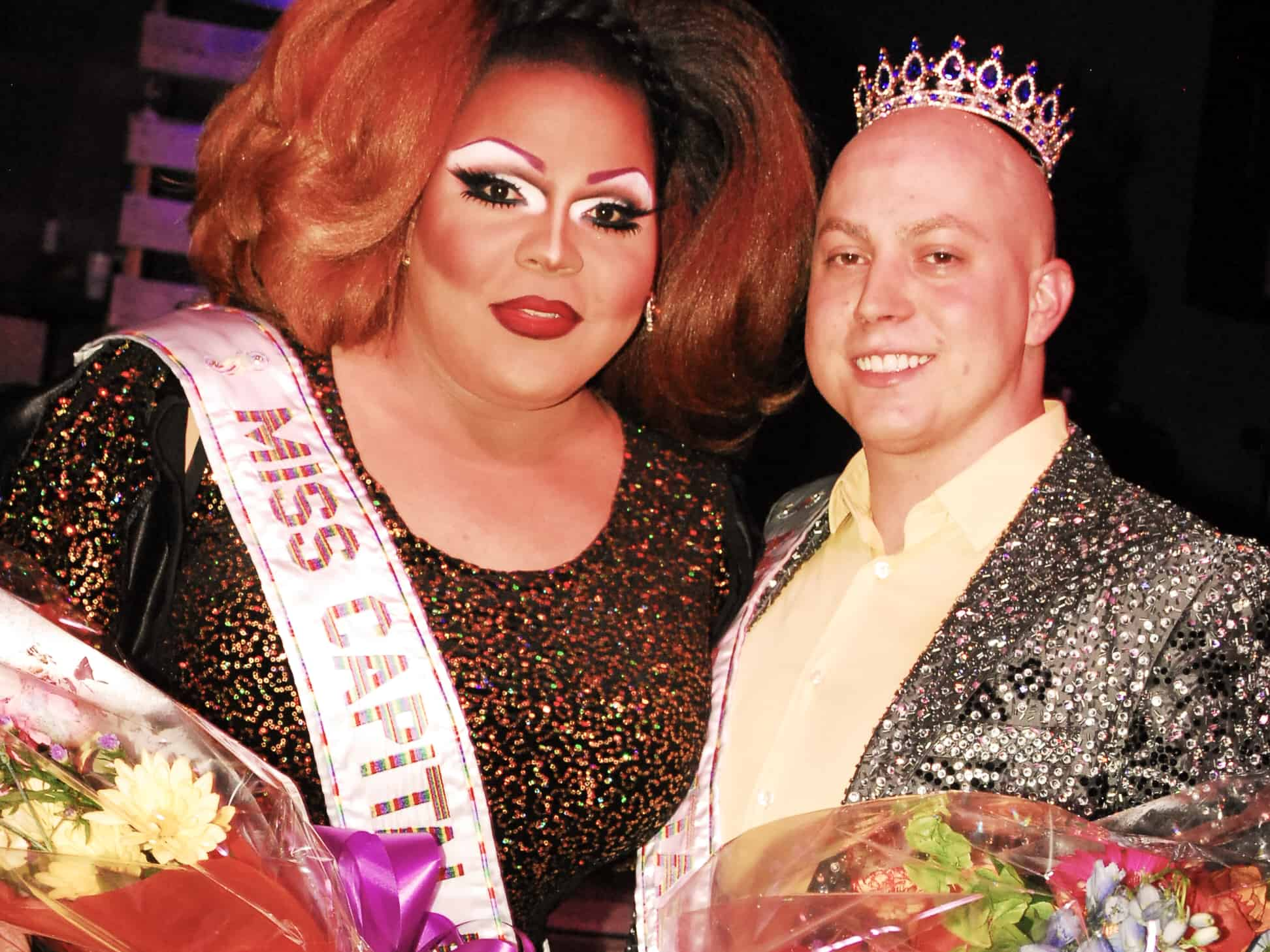Arizona governor vetoes bill seeking to ban LGBTQ content in schools
But Doug Ducey also signed an executive order requiring schools to notify parents before LGBTQ issues are discussed in class.
By John Riley on April 23, 2021 @JRileyMW

Arizona Gov. Doug Ducey (R) has vetoed a controversial bill that would have required parental permission before teachers could even mention LGBTQ-related content, even in passing, in sex education or history classes.
However, Ducey also issued an executive order requiring public notice of any LGBTQ-related lessons before it can be used in Arizona classrooms, a concession to advocates of the curriculum bill who wish to inform parents, particularly those with religious beliefs opposing homosexuality, before their children are introduced to topics that they may find objectionable.
In vetoing Senate Bill 1456, Ducey called the bill “broad and overly vague,” saying it could lead to consequences and be misinterpreted by school administrators in such a broad manner that it might bar teachers from addressing sexual abuse prevention education to younger children.
But he did call in his executive order for more transparency regarding topics broached in sex education classes, including a requirement that schools post materials and content online for parental review 60 days before broaching potentially controversial topics in order to allow parents to “opt in” to sex education classes, according to the Arizona Republic.
While Arizona is currently one of five states that requires parents to “opt-in” before receiving instruction in sexual education, the bill, proposed by Sen. Nancy Barto (R-Phoenix), was criticized for being overly stringent by requiring parental permission before subjects involving gender identity, sexual orientation, or HIV/AIDS prevention education could be addressed in the classroom.
Critics argued that the “gag rule” imposed by the law would have penalized teachers for even broaching facially-neutral historical facts about the LGBTQ community, or for allowing books with LGBTQ content on a reading list for literature classes.
Two years ago, Ducey signed a law pushed by lawmakers to end the state’s “No Promo Homo” law, which prohibited teachers from casting anything having to do with LGBTQ issues in a positive or even neutral light.
Some critics worried that Barto’s bill would effectively reverse that positive development, and open up the state to legal action, just as the “No Promo Homo” law had.
Michael Soto, of Equality Arizona, praised Ducey for allowing for more transparency without marginalizing LGBTQ students by forbidding certain content, such as discussions around sexual orientation and gender identity as part of sex ed classes.
Tory Roberg, the parent of a trans child who led protests against the bill, was happy to see Ducey veto the bill. But she believes the executive order only affirms what is already in state law.
“The school board meetings about sex education will give parents the opportunity to opt out of sex education,” Roberg wrote in an email to the Arizona Republic. “That sends a message that LGBTQ issues are controversial and can serve to alienate youth who identify that way. We have a long way to go when it comes to accepting and loving LGBTQ and trans kids as a society.”
See also: Arizona Republican compares nonbinary individuals to someone identifying “as a chicken”
LGBTQ advocates praised Ducey’s actions, saying the bill would have had far-reaching implications.
“History shows that restricting curriculum disproportionately impacts LGBTQ children, and Governor Ducey’s choice to veto this bill will prevent further discrimination and disinformation, and potentially save lives,” Alphonso David, the president of the Human Rights Campaign, said in a statement.
“This bill would have threatened the ability for all students — no matter their sexual orientation or gender identity — to feel supported by their schools and families to grow into who they are without fear. This legislation also would have paved the way for efforts to withhold important LGBTQ history and literature from their education,” David noted. “We must always work to protect LGBTQ students from discrimination while giving young people all the information they need to be comfortable navigating their adolescence and live freely and openly.”
“Regardless of their sexual orientation or gender identity, students in Arizona deserve to have access to high-quality sex education and information about LGBTQ history, literature, and current events,” added Bridget Sharpe, HRC’s Arizona State Director. “This veto will protect LGBTQ children and ensure every student has access to enriching educational materials that tell the story of LGBTQ people in this country.”
Read more:
HUD withdraws Trump-era revisions restricting shelter access to transgender people
Kansas Gov. Laura Kelly vetoes bill seeking to bar transgender athletes from sports
LGBTQ Websites Could Be Sued Under Kansas Anti-Porn Law
Under a vaguely worded law, some websites offering LGBTQ content or news could be sued if they don't age-verify users from Kansas.
By John Riley on April 18, 2024 @JRileyMW
A measure claiming to protect children from adult websites, which recently became law in Kansas, could potentially block minors from viewing any LGBTQ content.
The law, passed by the Republican-led State House of Representatives and Senate, requires websites that feature content "harmful to minors" to verify that visitors in Kansas are 18 or older.
To verify their age, visitors to such websites would have to provide their government-issued IDs.
Under the bill, any website in which 25% or more of its viewed pages in any month contain "material that is harmful to minors" is required to verify the age of visitors from Kansas.
HRC’s Kelley Robinson Makes the Time 100 List
Kelley Robinson, president of the Human Rights Campaign, named one of Time's 100 Most Influential People of 2024.
By John Riley on April 17, 2024 @JRileyMW
Kelley Robinson, the president of the Human Rights Campaign, has been named to Time Magazine's list of the "100 Most Influential People of 2024," marking a significant honor for the head of the nation's largest LGBTQ rights organization.
Writing for the magazine, Sarah Kate Ellis, the president and CEO of the LGBTQ media advocacy organization GLAAD, praises Robinson, the first Black queer woman to lead HRC in its history, as having "a vision for a more equal and just world that, paired with her talent for building coalitions across all intersections, has taken the LGBTQ+ movement -- and the larger social-justice movement -- by storm when it is most needed."
The 2024 Capital Pride Pageant Seeks Contestants
The Capital Pride Alliance will host the contest for the next Mr., Mx., and Miss Capital Pride winners at Penn Social on April 26.
By John Riley on March 29, 2024 @JRileyMW
The Capital Pride Alliance has announced the return of the Mr., Mx., and Miss Capital Pride Pageant for 2024.
The pageant, which was held annually prior to the COVID-19 pandemic, welcomes contestants of any gender identity to compete for one of three crowns.
Contestants are judged on Pride-themed attire, talent, and answers to questions posed by a panel of judges.
Winners are expected to embody Capital Pride Alliance's commitment to diversity and inclusion, and use their platform, wit, and skills to encourage others to express their true selves and have their voices heard, especially when advocating for acceptance and equality.
Support Metro Weekly’s Journalism
These are challenging times for news organizations. And yet it’s crucial we stay active and provide vital resources and information to both our local readers and the world. So won’t you please take a moment and consider supporting Metro Weekly with a membership? For as little as $5 a month, you can help ensure Metro Weekly magazine and MetroWeekly.com remain free, viable resources as we provide the best, most diverse, culturally-resonant LGBTQ coverage in both the D.C. region and around the world. Memberships come with exclusive perks and discounts, your own personal digital delivery of each week’s magazine (and an archive), access to our Member's Lounge when it launches this fall, and exclusive members-only items like Metro Weekly Membership Mugs and Tote Bags! Check out all our membership levels here and please join us today!
The Magazine
-
Most Popular
 D.C. Courts Pop-Up Businesses Ahead of WorldPride
D.C. Courts Pop-Up Businesses Ahead of WorldPride  Cher to be Inducted in the Rock & Roll Hall of Fame
Cher to be Inducted in the Rock & Roll Hall of Fame  California Mayor Recalled After Coming Out as Transgender
California Mayor Recalled After Coming Out as Transgender  For Don Mancini, Chucky is So Much More Than a Killer Toy
For Don Mancini, Chucky is So Much More Than a Killer Toy  Ralph Fiennes and Indira Varma Soar in STC's 'Macbeth' (Review)
Ralph Fiennes and Indira Varma Soar in STC's 'Macbeth' (Review)  The Powerful Story Behind David Archuleta's ‘Hell Together’
The Powerful Story Behind David Archuleta's ‘Hell Together’  Lawsuit Against New York AG Letitia James Dismissed
Lawsuit Against New York AG Letitia James Dismissed  Texas Governor Wants to Ban Trans People from Being Teachers
Texas Governor Wants to Ban Trans People from Being Teachers  Judge Blocks Ohio's Anti-Transgender Bans
Judge Blocks Ohio's Anti-Transgender Bans  Gay Furries Hack Right-Wing Network Real America's Voice
Gay Furries Hack Right-Wing Network Real America's Voice
 Judge Blocks Ohio's Anti-Transgender Bans
Judge Blocks Ohio's Anti-Transgender Bans  D.C. Courts Pop-Up Businesses Ahead of WorldPride
D.C. Courts Pop-Up Businesses Ahead of WorldPride  Cher to be Inducted in the Rock & Roll Hall of Fame
Cher to be Inducted in the Rock & Roll Hall of Fame  Texas Governor Wants to Ban Trans People from Being Teachers
Texas Governor Wants to Ban Trans People from Being Teachers  For Don Mancini, Chucky is So Much More Than a Killer Toy
For Don Mancini, Chucky is So Much More Than a Killer Toy  LGBTQ Teen Sues School Over Suspension For Rap Lyrics
LGBTQ Teen Sues School Over Suspension For Rap Lyrics  California Mayor Recalled After Coming Out as Transgender
California Mayor Recalled After Coming Out as Transgender  Lawsuit Against New York AG Letitia James Dismissed
Lawsuit Against New York AG Letitia James Dismissed  GLOW's Secret Garden Is An "Escape...With A Chill Vibe"
GLOW's Secret Garden Is An "Escape...With A Chill Vibe"  Ralph Fiennes and Indira Varma Soar in STC's 'Macbeth' (Review)
Ralph Fiennes and Indira Varma Soar in STC's 'Macbeth' (Review)
Scene
Metro Weekly
Washington's LGBTQ Magazine
P.O. Box 11559
Washington, DC 20008 (202) 638-6830
About Us pageFollow Us:
· Facebook
· Twitter
· Flipboard
· YouTube
· Instagram
· RSS News | RSS SceneArchives
- "We use cookies and other data collection technologies to provide the best experience for our customers. You may request that your data not be shared with third parties here: "Do Not Sell My Data
Copyright ©2024 Jansi LLC.









